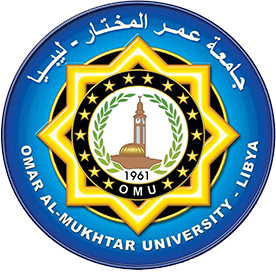| dc.description.abstract | The fate of Ibn Masarra's Sufi philosophy was not better than that of those who preceded him or came after him in the Islamic intellectual revival, such as the Mu'tazilites, the heretical ascetics (as they were called), and the innovative Sufis. His books were either burned or neglected, and his school of thought was misunderstood by most, if not the majority, of those who wrote about him and his school. Ibn Masarra's philosophy was a bold step towards unifying the human philosophical experience. It diversified its approaches, methodologies, and languages, activating Islamic philosophy to contribute to paving a universal human al-phabet—a language of consciousness turning away from the transient reality towards the profound inner self. In recounting Ibn Masarra's narrative in this humble paper, we aim to focus on key points that connect Ibn Masarra with the Greek philosopher Ammonius Saccas. Ibn Masarra's thought is a natural extension of the movement to reconcile religion and philosophy, and his immersion in the spiritual experience echoes Ammonius Saccas. Ibn Masarra was inspired by Ammonius, a fact documented by historians of Islamic thought. Additionally, Ibn Masarra renewed the views of Ammonius, which had become entwined with Neoplatonism after Ibn Masarra reinterpreted them, removing the Aristotelian terminology.
لم يكن مصير فلسفة "ابن مسرة" التصوفية بأفضل حالاً ممن سبقه، أو أتى بعده، من المجددين في الفكر الإسلامي كالمعتزلة وزنادقة الزهاد (كما كانوا يسمون) والمتصوفة الشاطحين؛ فلقد أُحرقت كتبه أو أهملت كما أُسِئَ فهمه من قبل معظم ـ إن لم يكن جُلّ ـ من كتبوا عنه وعن مدرسته. لقد كانت فلسفة "ابن مسرة" خطوة جريئة نحو توحيد التجربة الفلسفية الإنسانية، وإن تعددت مداخلها ومناهجها وكذلك لغاتها، وتفعيل للفلسفة الإسلامية للاشتراك في رصف أبجدية بشرية واحدة هي لغة الوجدان المنصرف عن الواقع الزائل نحو الباطن العميق. ونحن إذ نعيد سردية "ابن مسرة" في هذه الورقة المتواضعة، نلفت النظر إلى أننا قد هدفنا إلى التركيز على نقاط أساسية تجمع "ابن مسرة" بالفيلسوف اليوناني "امباذوقليس الأكراجاسي": إن فكر "ابن مسرة" هو امتداد طبيعي لحركة التوفيق بين الدين والفلسفة كذلك الاستغراق في التجربة الروحانية هو ما لفت "ابن مسرة" إلى أفكار "امباذوقليس" الذي كلف به "ابن مسرة" كما تروي كتب المؤرخين للفكر الإسلامي بالإضافة إلى إن "ابن مسرة" قد جدد آراء "امباذوقليس" التي نجدها وقد امتزجت عنده بالأفلوطينية بعد أن نقاها "ابن مسرة" من مصطلحها الأرسطوطاليسي. | en |
